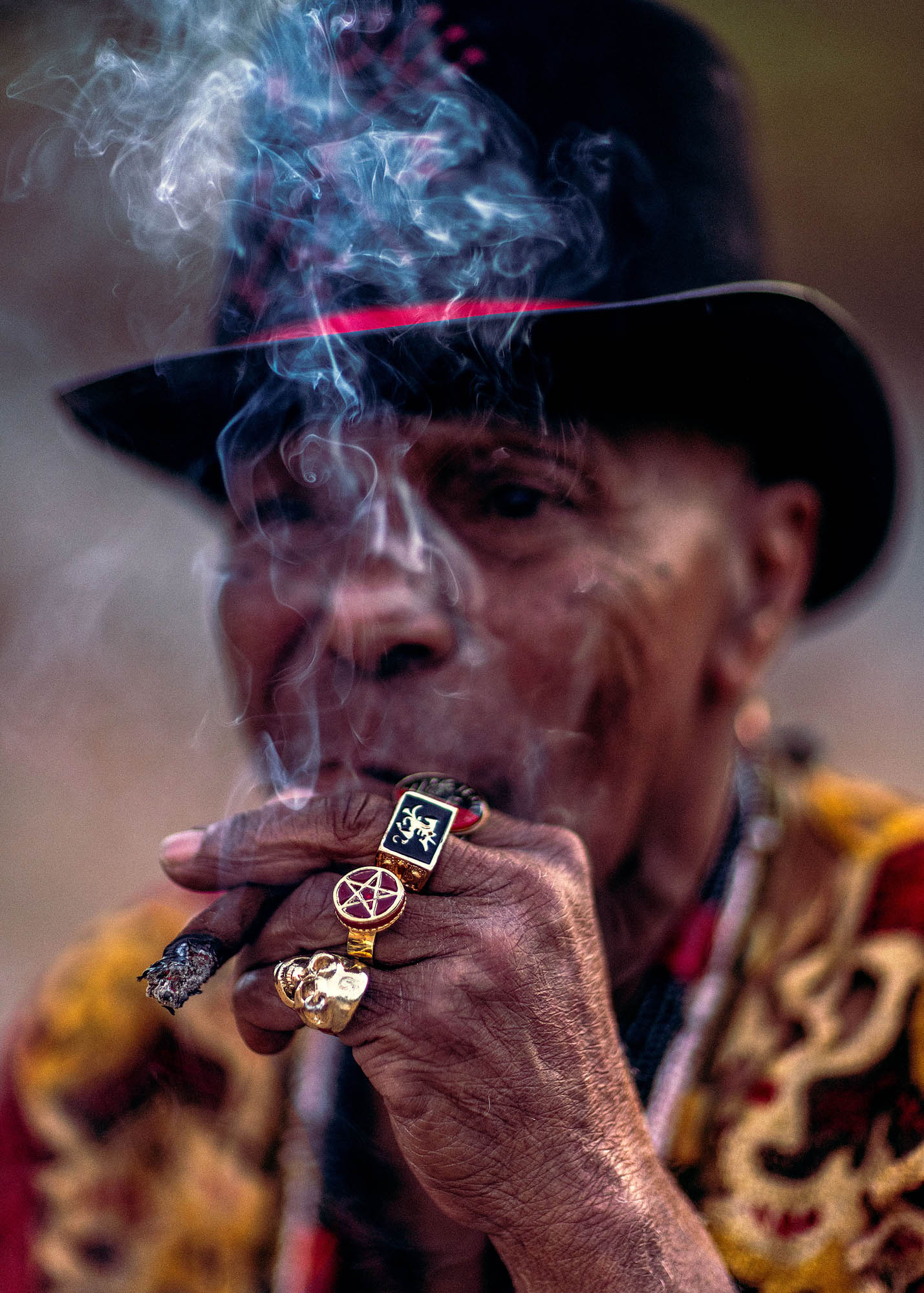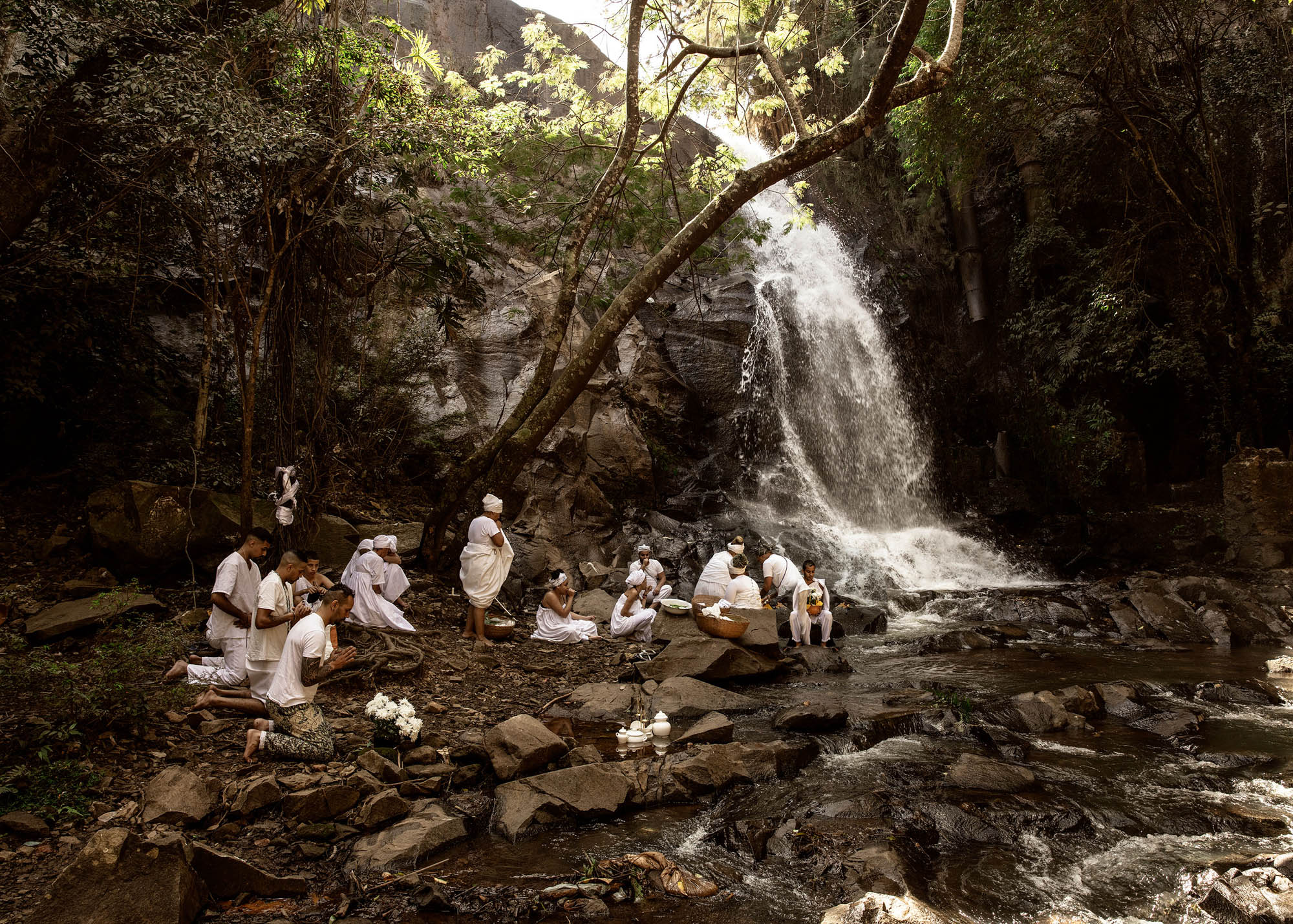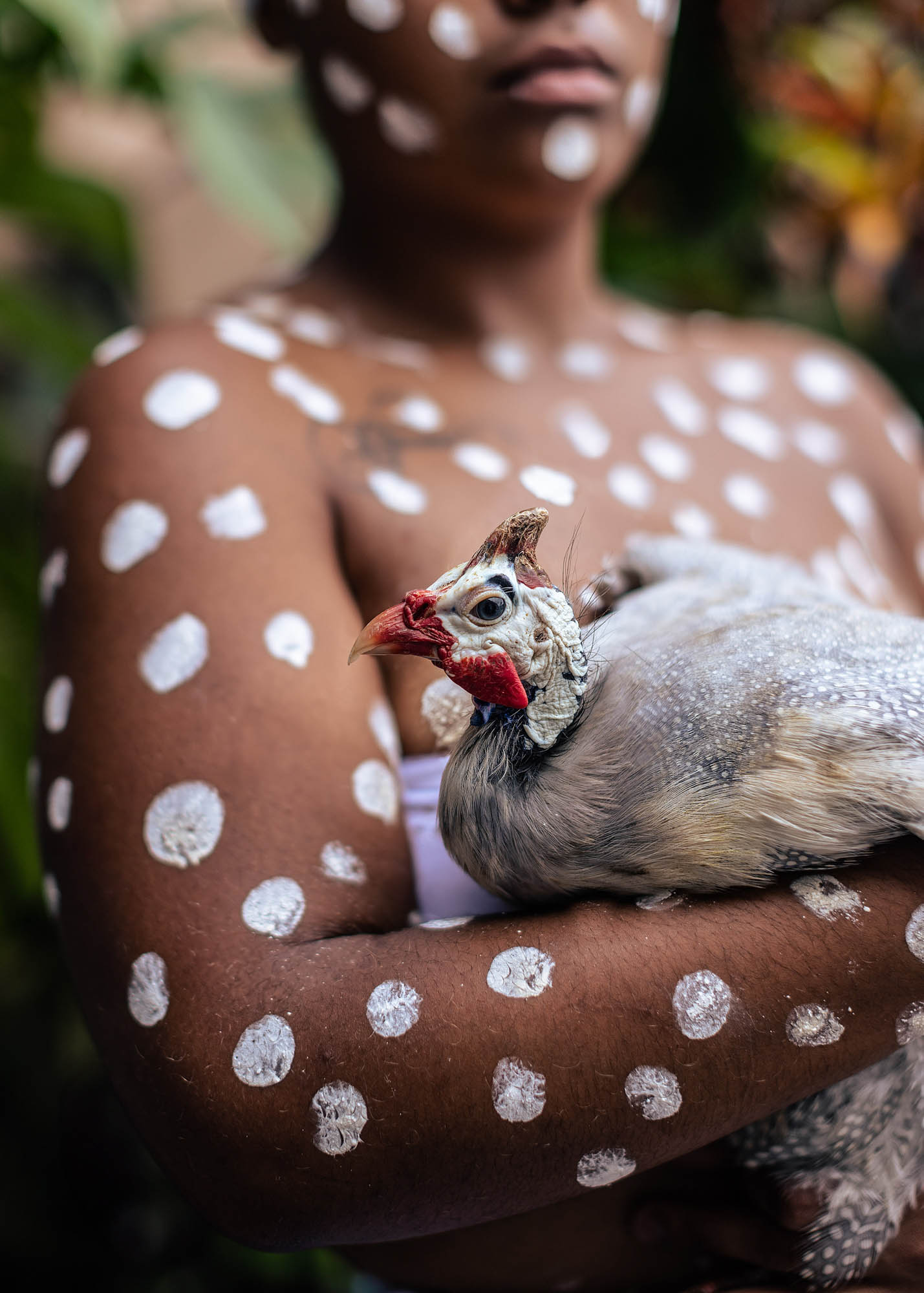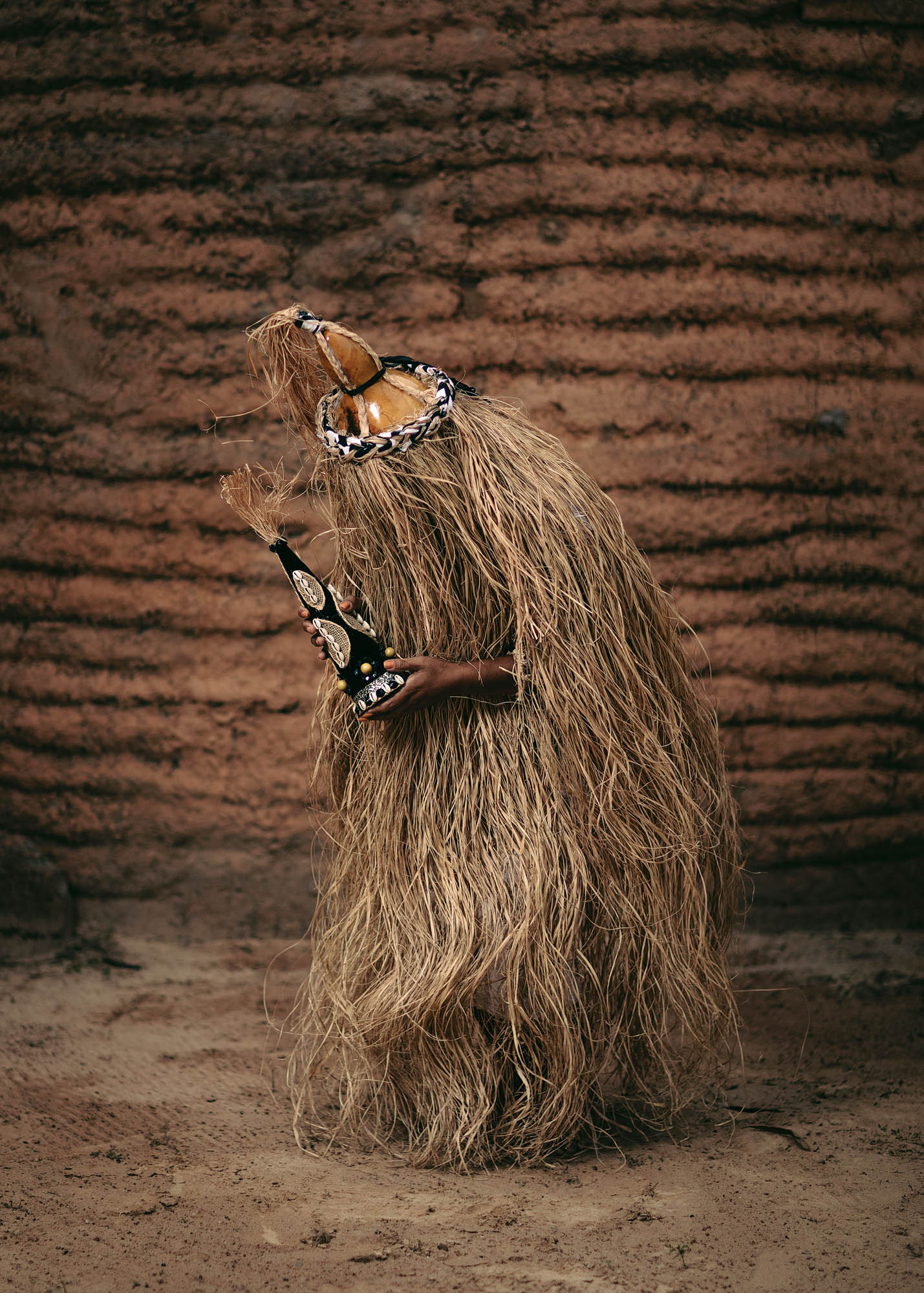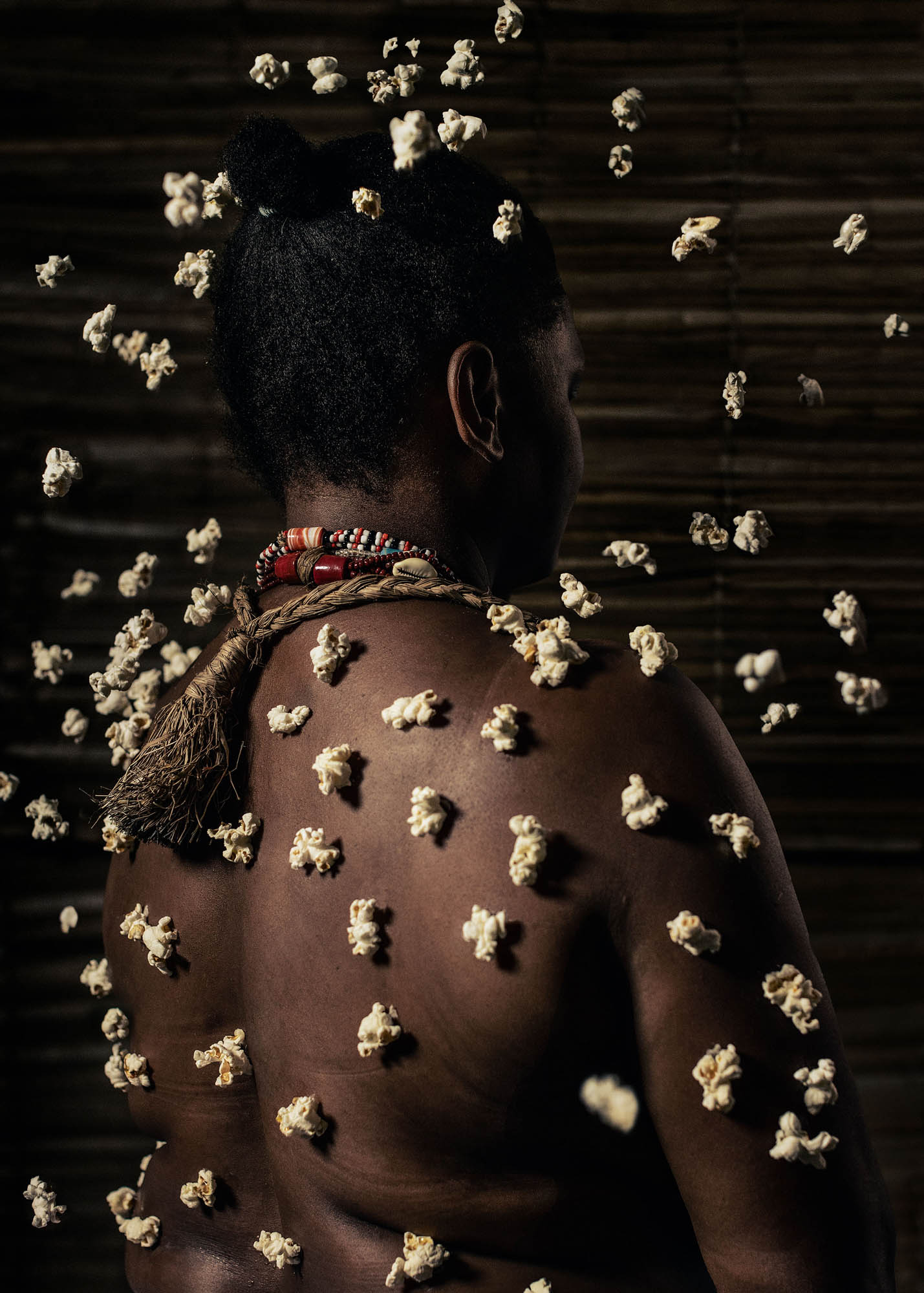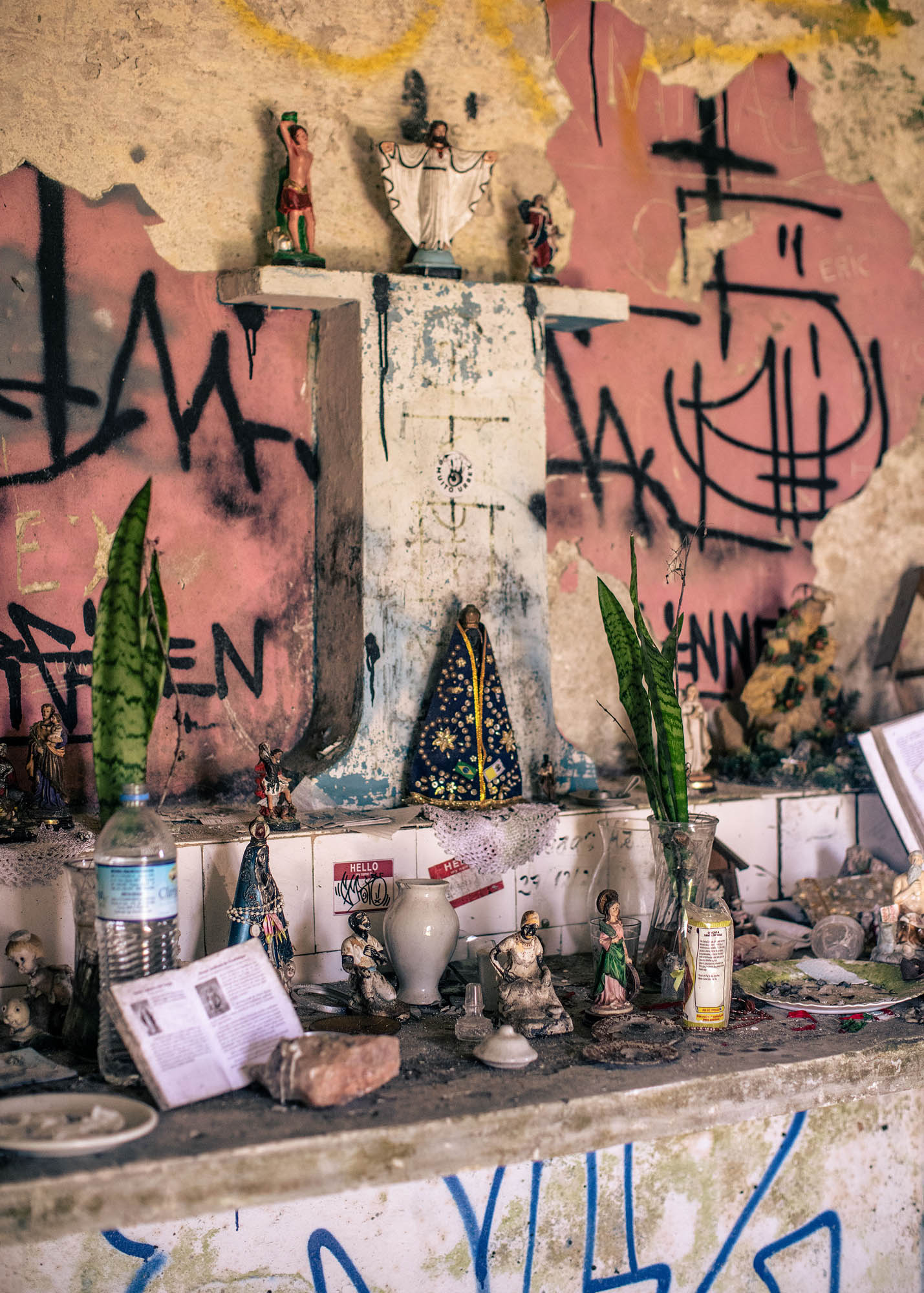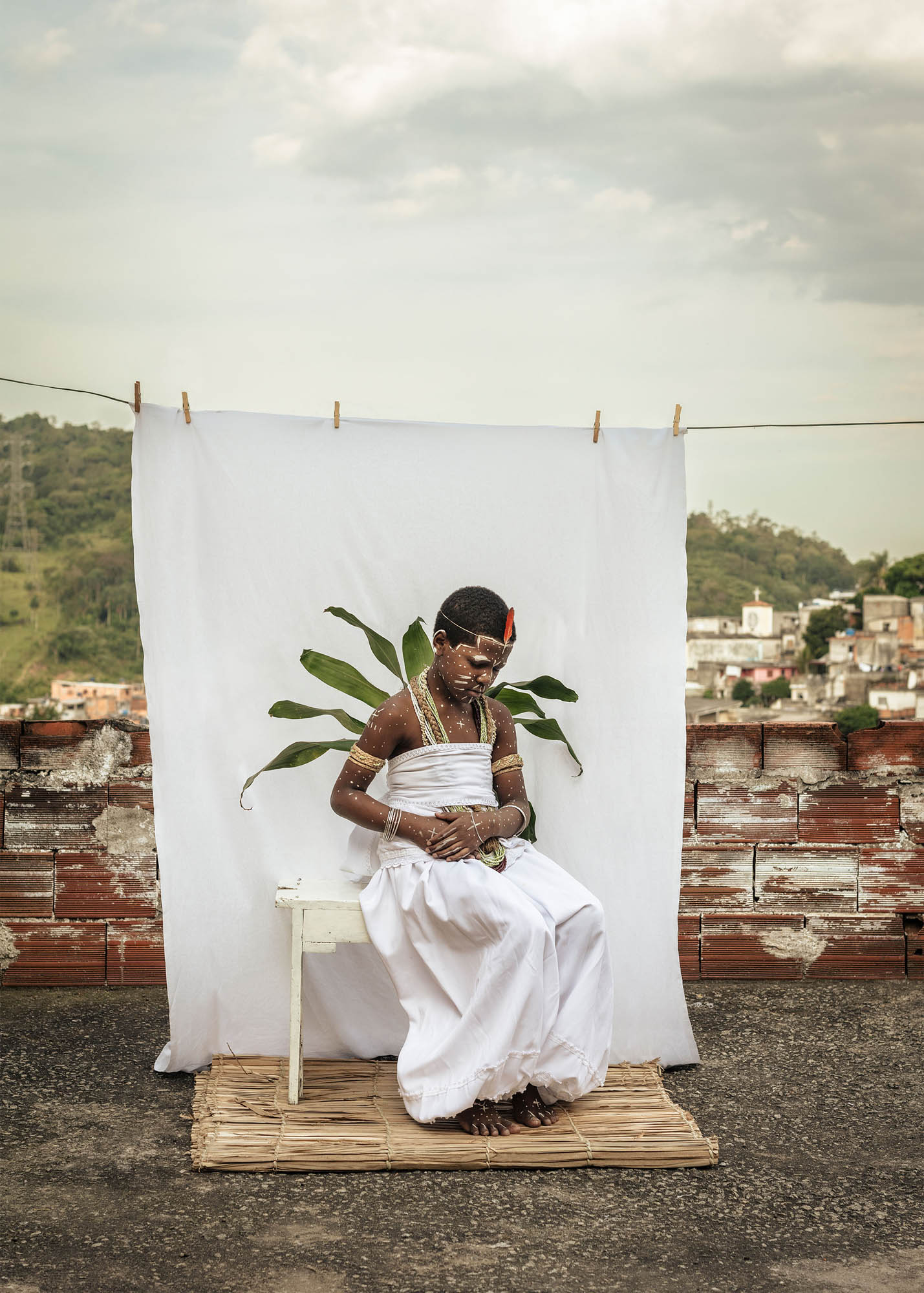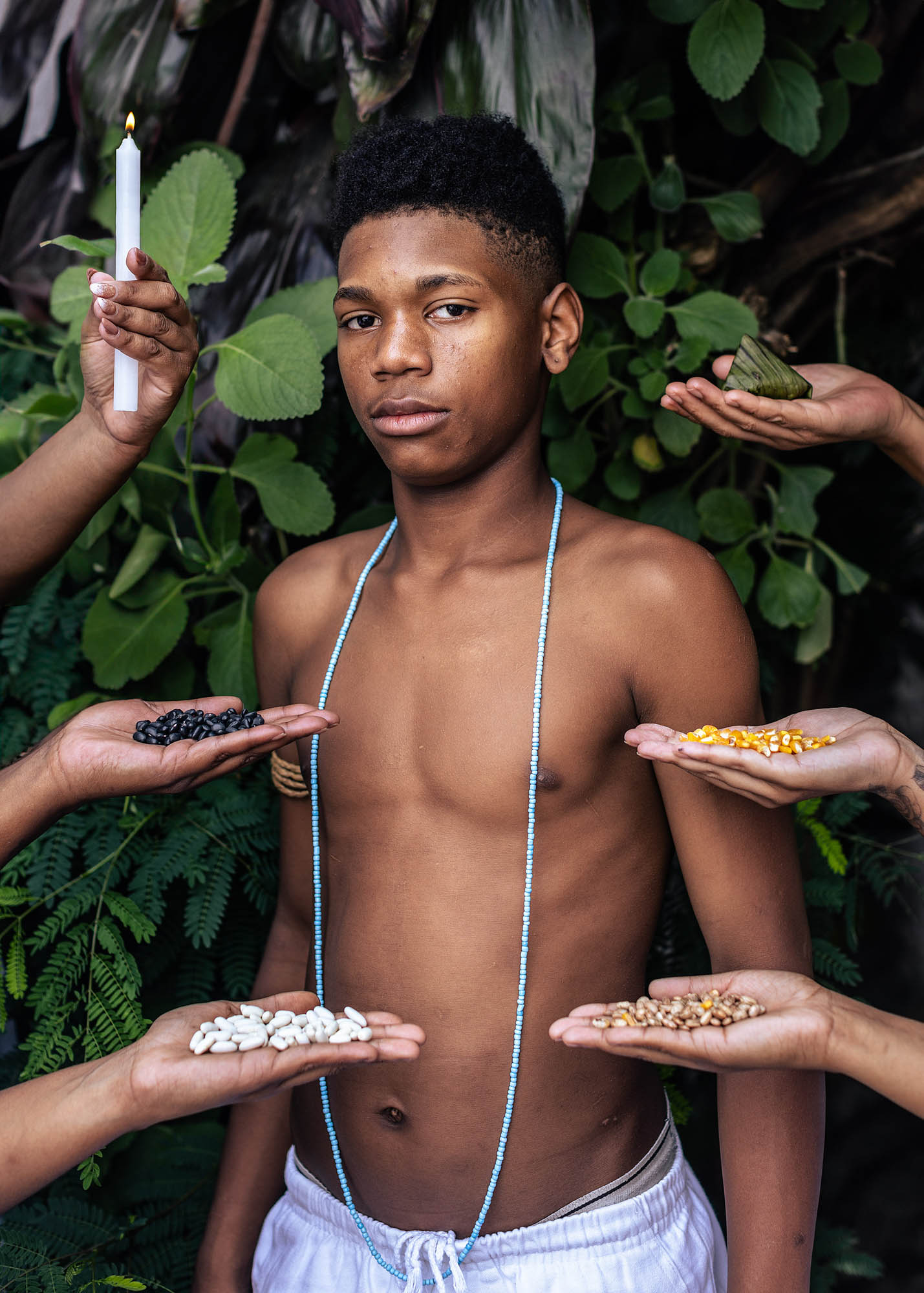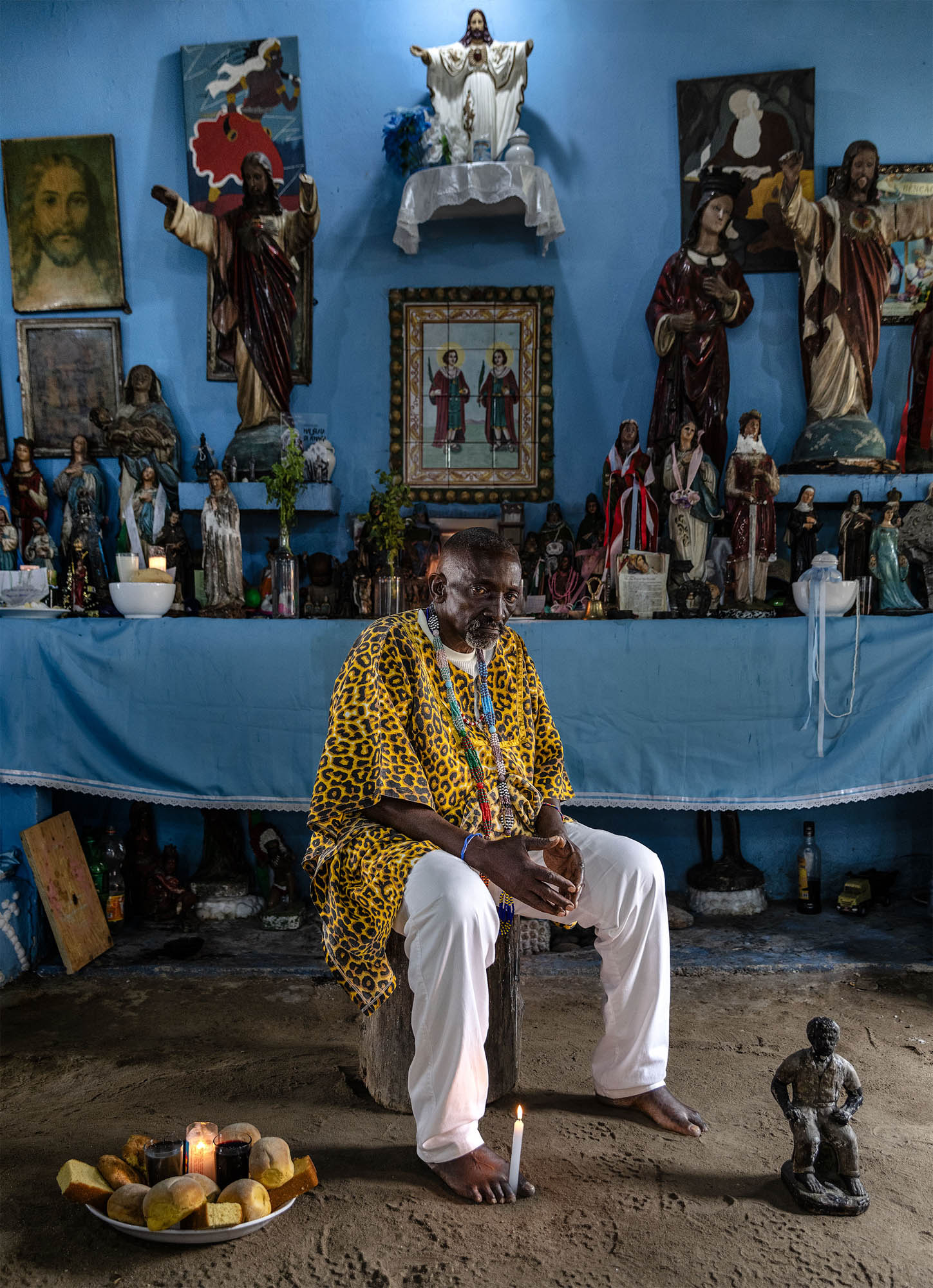M’kumba
M’kumba is an ongoing project dedicated to documenting the profound influence of Afro-based religions on the formation and evolution of Brazilian culture. The project’s name originates from an ancient Kongo language term, historically used to describe sorceresses and wise individuals. Over time, this term has been pejoratively associated with African religions in Brazil, reflecting a complex history of cultural interaction and oppression.
For three centuries, beginning in the 16th century, Brazil witnessed the forced migration of nearly five million Yoruba, Bantu, and Ewe people from Africa to work as slaves. Alongside their physical displacement, these individuals brought with them rich religious traditions that became intertwined with the fabric of Brazilian society. However, due to the propagation of medieval Christian ideologies that demonized African spiritual practices, these religions were often vilified and suppressed.
The repression of Afro-based religions persisted through various historical epochs, including the Catholic inquisition and state-sponsored persecution. It wasn’t until the late 20th century that religions such as Candomblé and Umbanda began to emerge from the shadows of prohibition. Despite their legalization in the 1980s, practitioners continue to face discrimination and violence from extremist Christian groups, with over 1,200 religious attacks reported in Brazil in 2022 alone.
Despite comprising 56% of Brazil’s population, individuals of African descent remain significantly underrepresented in identifying as Afro-religious, primarily due to fear of discrimination and persecution.
As an Afro-religious practitioner myself, I initiated the M’kumba project to document how the new generation is revitalizing and reinterpreting its mythologies and rituals. Through platforms like social media and real-world gatherings, these individuals are reclaiming their cultural heritage and challenging religious intolerance. By spotlighting these efforts, M’kumba aims to elevate Afro-based traditions within the broader Brazilian cultural landscape, fostering understanding and appreciation for these marginalized religious practices.


